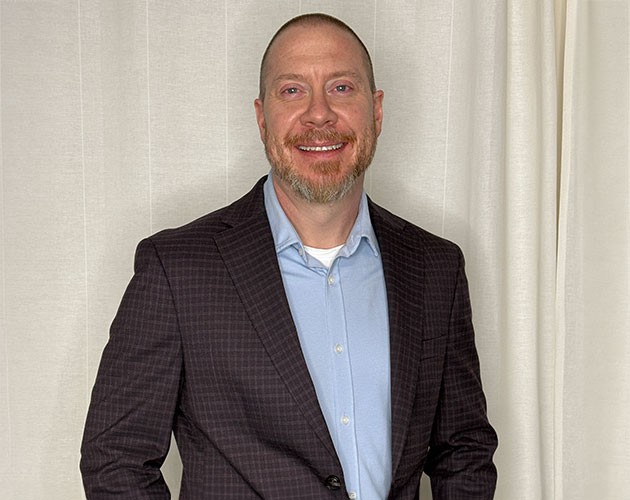From Engineer to Manager

As the manager of the solutions engineering team at OneLogin, Khizar Sultan is responsible for the output of his five solutions engineers. These engineers work hand-in-hand with an in-house sales team to implement their customers' needs. As Sultan says, they possess half sales skills and half engineer skills with "that mix of a techie person who can also explain things in a very simple way."
This hybrid-mindset position is a hot commodity in the startup landscape of the San Francisco Bay Area and Silicon Valley. In fact, a recent search for "solutions engineer" on Glassdoor.com brought up more than 7,000 open positions. And managing a group of this nature? Well, that requires not only an understanding of the ins and outs of the day-to-day work, but also a deep understanding of how the business as a whole runs and how to hit those goals.
So let's rewind to when Sultan was in the very position he now oversees:
In the early 2000s, Sultan transferred from Emerson Electric's East Coast hub to its San Francisco branch as a sales engineer (that time period's version of a solutions engineer). While he enjoyed working with his customers to decipher their needs into elegant and utile designs, the electrical manufacturing field wasn't right for him. Being in San Francisco, Khizar wanted to work in the fast-paced, high-energy environment of a startup. And so he quickly made his way to a booming new business entity called Box as a sales engineer to assist in implementing file-sharing capabilities for enterprise companies.
Being able to cater the courses to the things that I wanted to learn was a big value-add for me.
Enter UC Berkeley Extension
During his tenure at Emerson Electric and then Box, Khizar had enjoyed successes as a sales engineer, but he wanted to move into a management position, to have a team that he could inspire and teach.
To get the tools needed to move up in the ranks, Khizar could have gone the M.B.A. route, but with the fast-paced nature of startups, the time to complete that advanced degree just wouldn't work with his aspirational timeline. So he chose our Business Administration certificate because "it was the closest to an M.B.A.," he says. "The classes I took were more focused around learning about people management, project management, learning about the essentials of business."
On his two favorite courses: “The project management class was helpful because I could take those skills with me. You would think that a lot of the stuff that you learn around people management skills are obvious, but they're not. We watched tutorial videos on how to deal with employees or your own team members by learning about different personality types and using that to understand how to communicate better. I remember learning those aspects of business and having not thought about it that way before, which was really helpful.
"And in the venture finance course, I learned how startups in Silicon Valley work: How they get funding and the metrics that matter to them. I think working at a startup and seeing it grow rapidly, you dismiss everything that's happening in the background. But understanding the metrics, using them to drive your team and your business going forward, was also really helpful.
"Overall, being able to cater the courses to the things that I wanted to learn was a big value-add for me."
My education at Extension really stuck out to my job interviewers—compared to the other candidates.
Post-Certificate Living
Three years after earning his certificate, Khizar is talking to me from his desk as the manager of the solutions engineering team at OneLogin. Where he once started as a solutions engineer, Khizar is now managing that position.
"I didn't have any experience being a manager when I applied for this job," Khizar recalls, "so I needed to bring some sort of skill set with me. Oftentimes, people learn it in the field or they bring it through an educational background and apply that and learn the rest in the field. That was the approach I took: I came with this education that I had crafted from my experience at Extension. I felt like during the interview process and communicating with their VP, my education at Extension really stuck out to them compared to the other candidates—having put in the time, effort and resources to acquire that education."
Now as a manager, Khizar is able to take lessons learned from his time with Extension and not only move his career forward, but those of his direct reports.
"One of the things I learned was how startups make their money and what's important to them with their venture funds. Understanding the inner workings of how the business runs, I was able to communicate those things to my team members, who were also young workers like when I was out of college and may not understand how a startup in Silicon Valley is a different business than other organizations. I think my team liked learning about that.
I've got a couple of employees who are straight out of college and are learning the ropes: the difference between the general business world and being in Silicon Valley. They're dispersed across the U.S.: three here in S.F., one in Austin and one in New York. There are challenges that go with that; that's where the communication skills have helped out a lot."
And learning about the general workings of a business? Khizar is combining those startup KPIs with the people management skills to not only help him understand how his work impacts the business at large, but also to help each of his employees understand the impact they have to the overall business goals. "Working cross-functionally with other teams has been a big value-add for us, particularly the product team helping influence where the product is going, relaying what our customers are asking us to build, and qualifying out deals and projects that may not be a good fit for us. That's our day-to-day role. We're directly tied to the sales revenue, so there's a big pressure of getting our work to the finish line."


